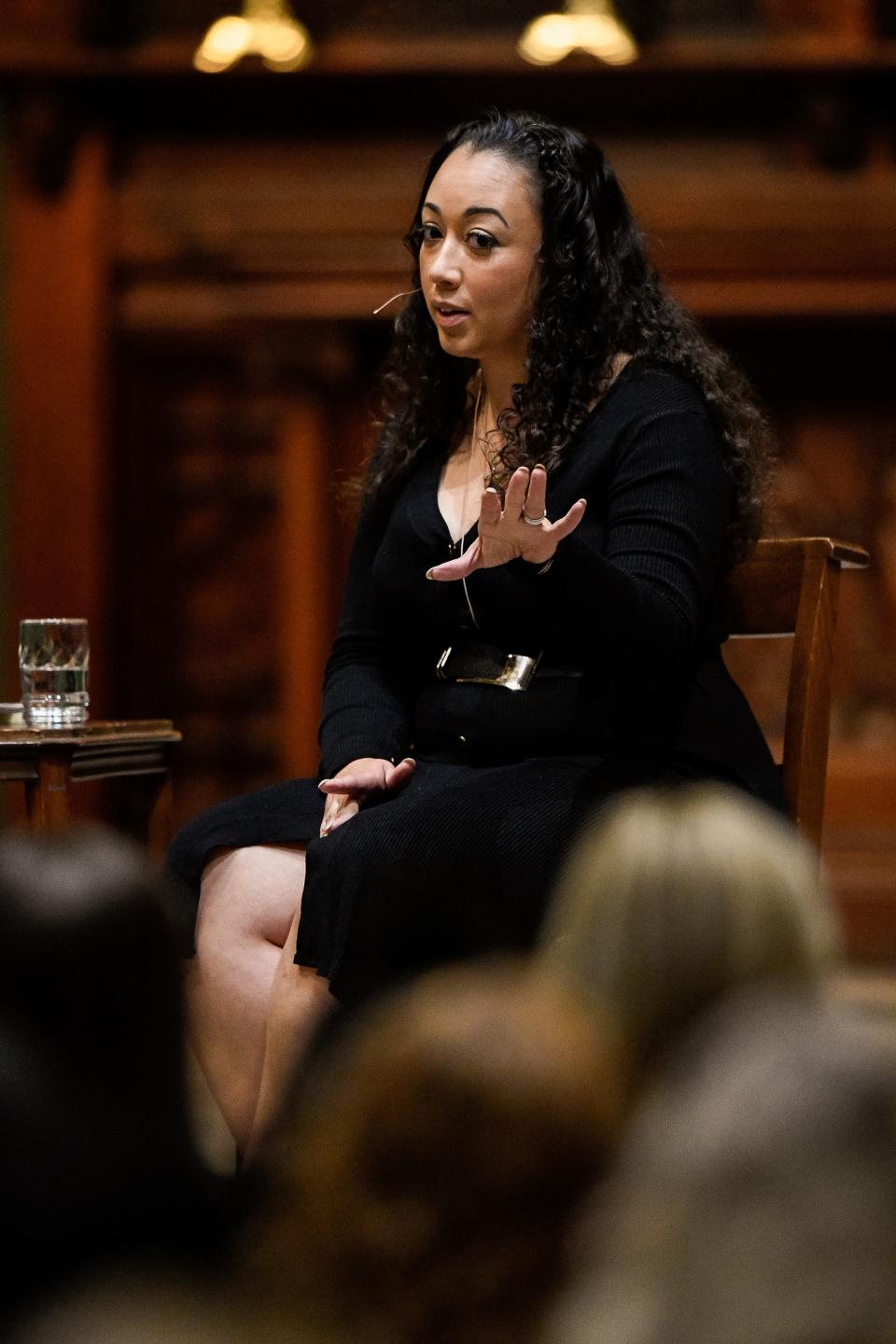Tennessee Supreme Court strikes down juvenile life sentence law

Juveniles convicted of first-degree murder no longer face a mandatory 51-year sentence after the Tennessee Supreme Court on Friday found the law violates the Eighth Amendment.
It was the case of Tyshon Booker, 16 at the time of his arrest, that brought the issue to the high court's attention. He was convicted of first-degree murder after fatally shooting G'Metrik Caldwell, 26, in Knoxville in 2015. He was tried as an adult.
Until now, Tennessee's mandatory sentence for juveniles was the strictest in the country by more than 10 years. A person convicted of first-degree murder had to serve at least 51 years of a 60-year "life" sentence before being eligible for parole.
But under the Eighth Amendment, applying the heavy sentence to a juvenile without a mechanism for judicial discretion amounts to cruel and unusual punishment, the state's highest court found, striking down the 1995 law to revert to an earlier version.
"We had this system that was a complete outlier," Booker's attorney, Jonathan Harwell, a Knox County public defender, told the USA TODAY Network-Tennessee on Friday afternoon. "The court has held that this is something we as a society don't condone, something we can't allow to happen in our name anymore.
"That means there's well over 100 people who now have hope of breathing air outside of prison they didn't have before."
Tennessee out of step with nation
A 2019 investigation by The Tennessean, cited in Friday's ruling, found more than 100 incarcerated Tennesseans serving life sentences for crimes committed as children. The law, out of step with the rest of the nation, gained attention through the case of Cyntoia Brown.
Convicted in the murder of a 42-year-old Nashville real estate agent when she was 16, Brown faced the mandatory minimum of 51 years.
In January 2019, outgoing Gov. Bill Haslam granted her clemency, calling her sentence "too harsh."
In his decision to grant Brown’s early release, Haslam acknowledged her case was not unique and said he hoped "serious consideration of additional reforms will continue, especially with respect to the sentencing of juveniles."
In Friday's 21-page ruling, the court detailed current medical understanding on juvenile crime and rehabilitation.
"Just because someone struggled with problems when they were 16 or 17, years ago, there's not a reason to think that they can't be a productive member of society," Harwell said.
To him, it's key also that the possibility of parole down the road opens so many doors to rehabilitation that remain closed to those who have no hope of release.
"That's a powerful incentive it's also just the way people should be treated," he said. "We should not be locking up the people for mistakes they made as children, telling them that they can never have a second chance."
Supporters of the legal challenge grew as it moved up through the courts, including legal advocacy groups like the American Civil Liberties Union and the NAACP, religious organizations, scientific experts, previously incarcerated individuals, restorative justice workers and more — a loud and varied call for reform.

Friday's ruling
The ruling leaves space for judges to adjust sentences for juveniles convicted of first-degree murder. It also opens the door for the legislature to review the criminal code, should lawmakers wish to lay out a new, constitutional sentencing scheme for juvenile defendants.
Justice Sharon G. Lee, who announced this week she plans to retire in August, penned the majority opinion. She was joined by Special Justice William C. Koch and Justice Holly Kirby, who issued an additional concurring opinion.
In it, she noted that courts, including the U.S. Supreme Court, have held that juveniles are not the same as adults when it comes to both decision-making that leads to criminal behavior and response to punishment.
The law "lacks individualized sentencing, which serves as a bulwark against disproportionate punishment, and it goes beyond what is necessary to accomplish legitimate penological objectives," she wrote.
Dissent claims court is policy-making
Dissenting, Justice Jeffrey S. Bivins argued the ruling oversteps the authority of the courts. Joined by Chief Justice Roger A. Page, he said he found the majority's argument "sound" policy — but he argued the court should not make policy.
Both Lee and Kirby were quick to rebut his approach in their opinions.
The courts have a duty, Lee wrote, to not "ignore an injustice" in the court's role of upholding the state and federal constitutions.
Kirby, meanwhile, defended the majority's ruling in light of the national trend away from harsh life sentences for juveniles. She said Bivins was "shrugging off" vital information.
"This is weak tea," she wrote.
In previous, tough-on-crime eras, it would not have been surprising to see a dissent argue that the defendants should serve full life sentences with no respect to age or mitigating circumstances, Harwell said.
“It does say something that even the dissent here agrees that this policy of incarceration and extreme punitive justice isn’t good as a matter of policy,” he said.
Booker was not resentenced under the ruling; his prison sentence remains 60 years.
But for the first time, he can expect to one day, between 25 and 36 years into his sentence, receive an individualized parole hearing where his age, rehabilitation and other circumstances can be considered.
He has a chance to get out of prison before he turns 45.
This article originally appeared on Nashville Tennessean: Tennessee Supreme Court strikes down juvenile life sentence law

